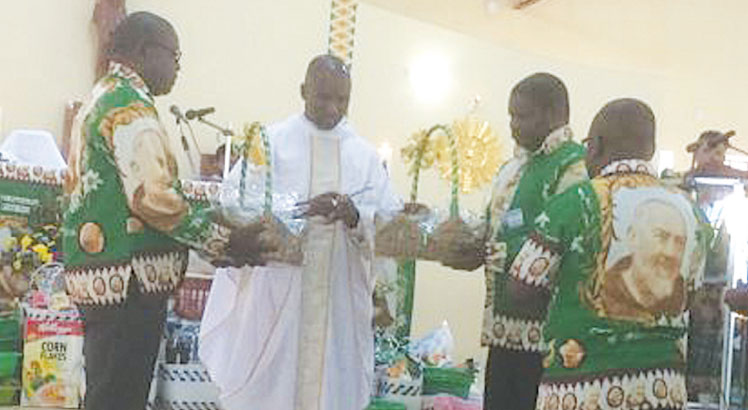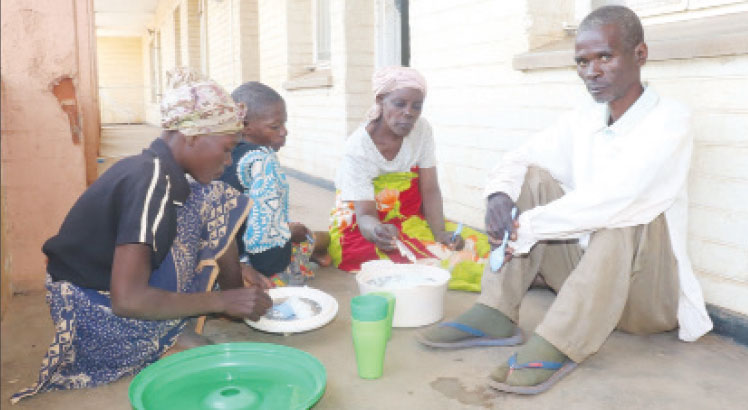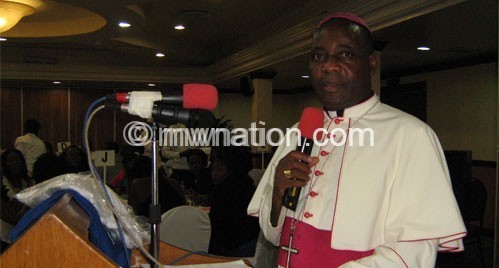Vendors, ethics and the church
It is Saturday morning and chillingly cold in Loti Village in Traditional Authority (T/A) M’mbelwa in Mzimba.
But Grant Phiri, 25, is already up pitching his weighing scale outside the house of Charles Chisambi.
Since farmers started harvesting two months ago, Phiri has been camping in this village where he has been buying various crops, including maize, soya beans and sunflower.
“I have been in this business for some time,” says Phiri. “This business helps me to fend for my family as well as fulfilling church obligations such as paying our tithe.”
Phiri is one of the smallholder traders—otherwise known as private traders or vendors—who have earned themselves bad reputation owing to their alleged unprofessional and unethical practices when doing their businesses.

The bad reputation has prompted some quarters to warn subsistence farmers against selling their strategic crops, such as maize, to private traders.
Opponents of the vendors believe farmers are safer selling their produce to state-owned grain trader—Agricultural Development and Marketing Corporation (Admarc).
They, among others, accuse private traders of ripping of farmers with low prices that are usually below government recommended prices.
This has also prompted some people to call for the banning of vendors in Malawi.
In March 2016, the Catholic Development Commission (Cadecom), a development arm of the Episcopal Conference of Malawi (ECM), in conjunction with Civil Society Agriculture Network (CisaNet) and Oxfam Malawi, recommended regulation of maize sales, emphasising that market liberalisation is robbing the country of opportunities to stock enough food for its citizens.
The three organisations noted that market liberalisation is giving private traders too much leeway to enrich themselves at the expense of poor Malawians.
Speaking in Lilongwe at the presentation of findings of the study, Cisanet national coordinator Tamani Nkhono-Mvula stressed that private traders are violating people’s right to food by buying maize, which they hoard at a critical time it in anticipation for higher prices during lean period.
But Rural Livelihoods and Economic Enhancement Programme (Rleep) national programmes director Dixon Ngwende thinks smallholder traders, commonly referred to as vendors, have a role to play in value chains of grains.
Ngwende notes: “Smallholder traders have a role to play in the value chain of grains and this is manifested in that smallholder farmers continue selling their produce through the vendors despite constantly being warned not to.”
He, therefore, believes smallholder traders need technical and professional support to enable them to do their business in an ethical manner so that they can provide the missing link and earn positive reputation.
And speaking in Mchinji last month when he opened a two-day grain aggregators training programme, Ngwende challenged vendors to act in a manner that would change people’s perception towards them.
He urged Malawians to change their mindset towards private agro-produce vendors, saying they are playing a pivotal role commercialising the agricultural sector in the country.
Ngwende said it was unfortunate that vendors continue to be branded as thieves, arguing not all traders are involved in unethical practices such as manipulation of weighing scales.
He explained: “Rleep recognises the role vendors play in the value chain processes. They are bridging gaps existing between rural-based and smallholder farmers and the organised markets because majority of farmers cannot access organised markets.”
He said Rleep has embarked on a project to train the vendors so that they are equipped with adequate business ethics and appreciate the importance of buying produce that is ready for market instead of rushing for grains that are partially dry. Rleep is also emphasising on the need for vendors to buy graded commodities at prime prices, thereby avoiding throwing out part of the stocks as foreign bodies.
The training is part of the organisations’ efforts to address concerns the public has been raising against private traders.
“At the end of these trainings, we want cases of cheating through manipulation of weighing scales to be a thing of the past,” he stressed.
Founder of the newly established Life International Church Prophet Amos Kambale warns that the proposed ban may not only hurt individual vendors and their families, but faith groups which they belong to.
Kambale states that some of the vendors are Christians who are always committed to fulfilling their spiritual obligations, including paying of tithe and contributions to charity work.
“Therefore, banning them will have a negative impact on many sectors apart from the economy. Hence, I would like to agree with Ngwende that we need to give vendors a second chance and also train them so that they can depart from their unethical practices,” says Kambale. n





